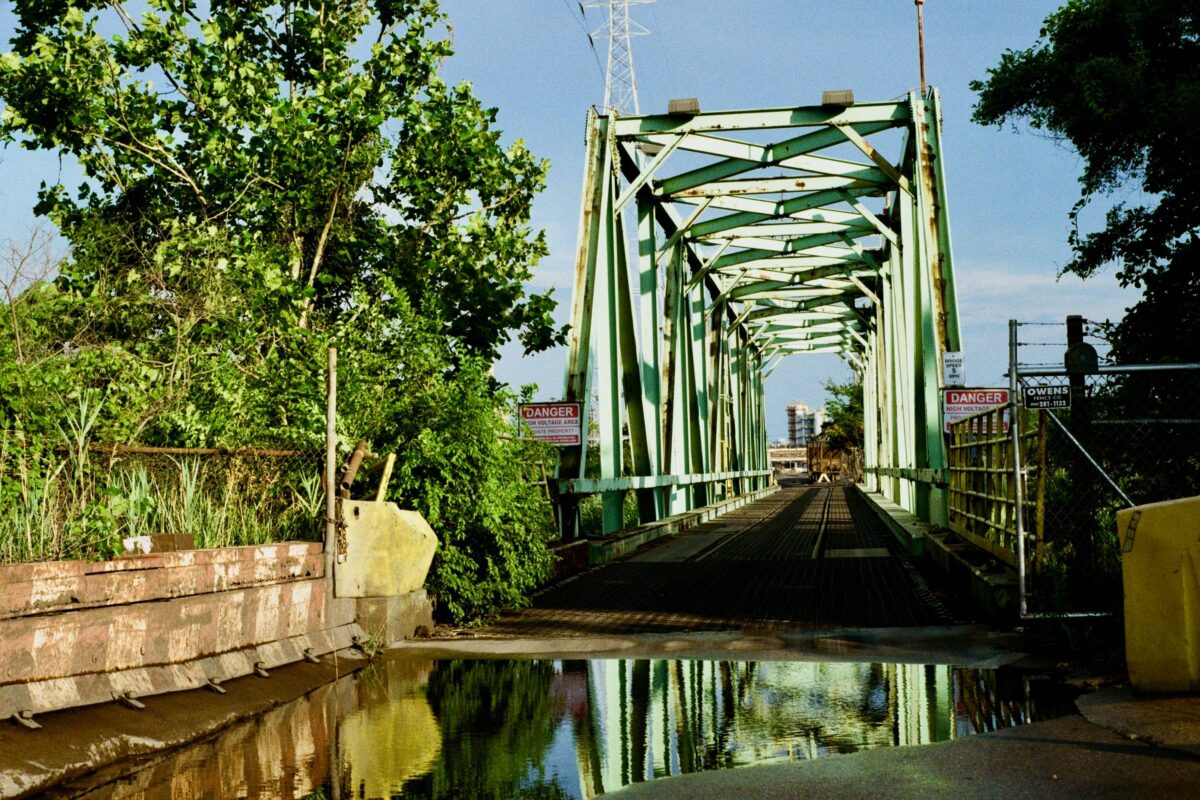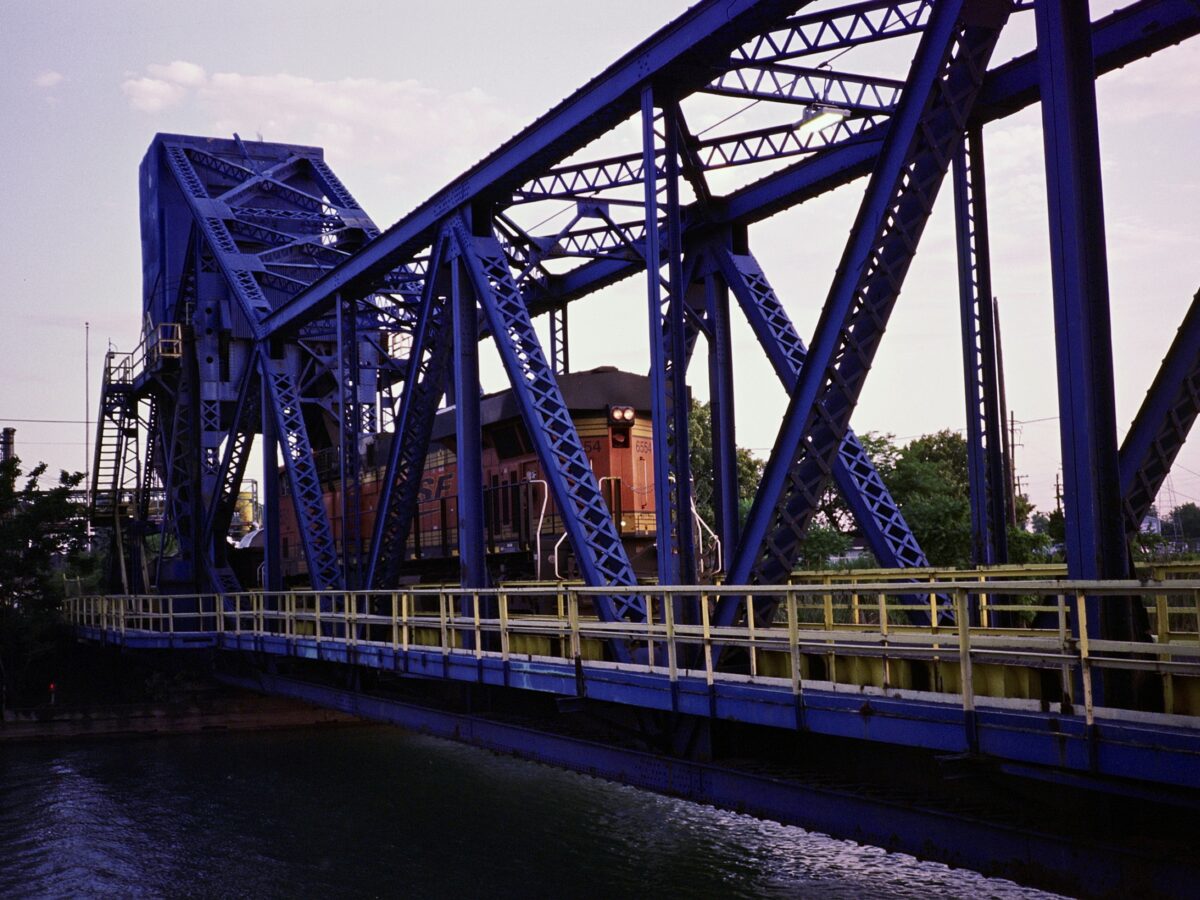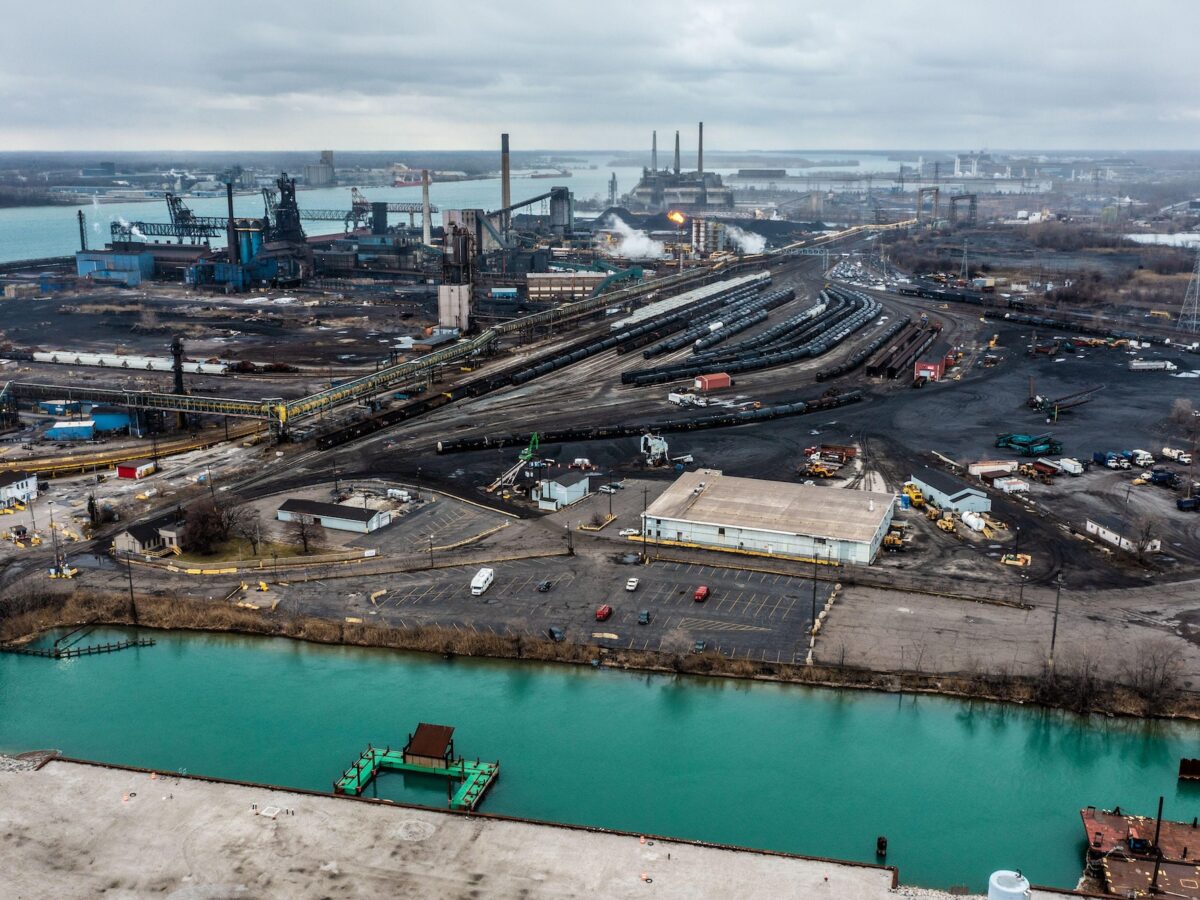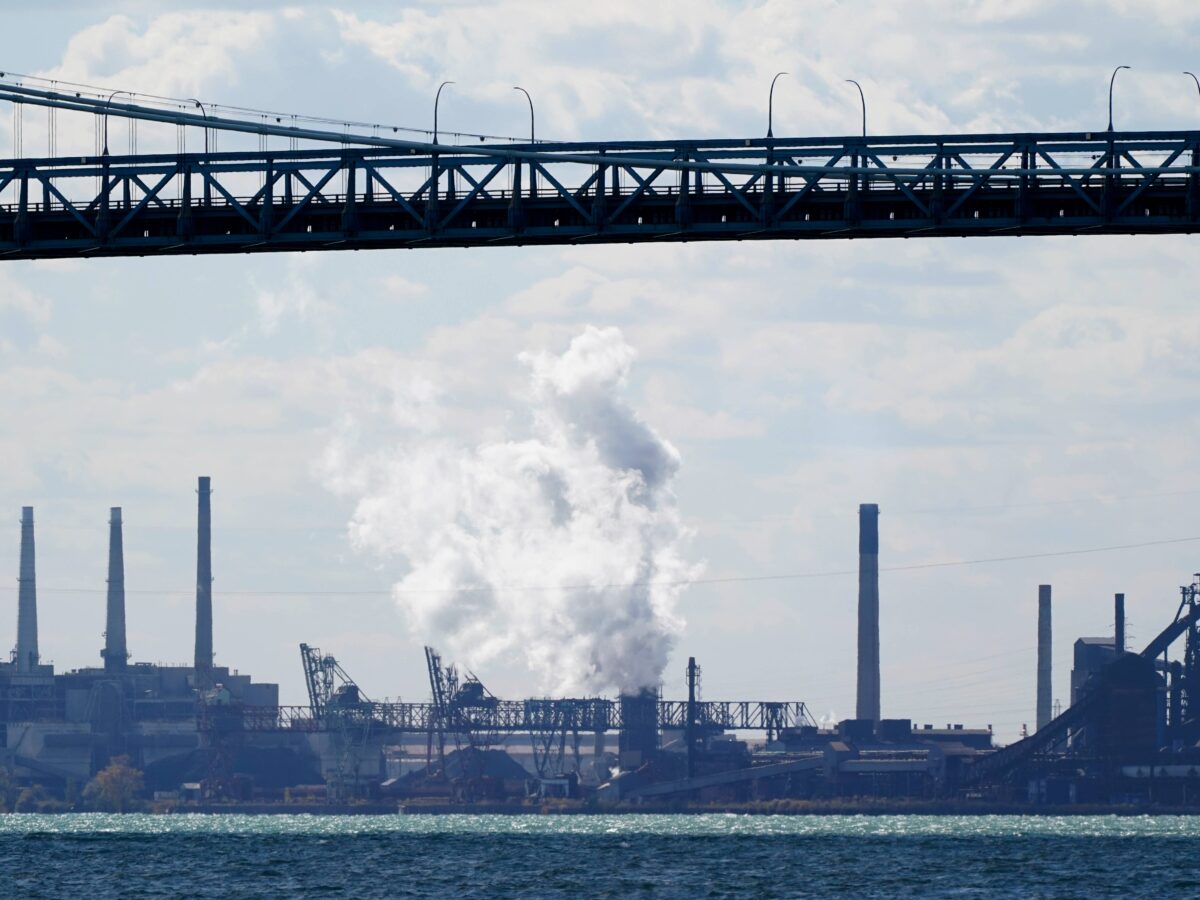Overview:
-A federal judge shoots down DTE Energy's argument that it cannot be held liable for Clean Air Act claims against EES Coke Battery.
-The decision comes in an EPA lawsuit filed against the Zug Island facility over sulfur dioxide emissions.
-EES Coke Battery's vice president tells Planet Detroit the company is evaluating its appeal options.
This story was produced with support of Internews’ Earth Journalism Network.
DTE Energy subsidiary EES Coke Battery violated the Clean Air Act, and the utility must continue to face an Environmental Protection Agency lawsuit over the Zug Island facility’s sulfur dioxide emissions, a federal judge ruled Monday.
EES Coke Battery emitted significantly more emissions than its 2014 Clean Air Act permit allowed, and the coke oven facility failed to comply with the reporting requirements of Michigan’s environmental regulator in 2018 and 2019, exceeding both its baseline and projected actual emissions for sulfur dioxide by at least 40 tons, U.S. District Judge Gershwin Drain said in his ruling.
The EPA sued EES Coke Battery in 2022, alleging the coke oven facility violated the Clean Air Act, emitting thousands of tons of the air pollutant sulfur dioxide from its River Rouge operation.
Parent company DTE Energy, which was added as a defendant in the lawsuit last year, argued in a motion for summary judgment that it cannot be held liable for Clean Air Act claims against EES Coke Battery.
Drain denied DTE’s motion Monday and granted a motion for partial summary judgment filed by the EPA in the case.
Citing case law, Drain said there is evidence demonstrating that DTE “actively participated in and exercised control over the facility’s operations regarding emissions, thereby supporting a finding that they are ‘operators’ under the Clean Air Act.”
The EPA lawsuit is scheduled for a Sept. 15 bench trial.
Environmental lawyers say ruling encouraging, EES Coke Battery signals appeal
Drain’s ruling is an encouraging one at a time when clean air is “under attack,” according to a statement from Earthjustice, an environmental law firm representing the Sierra Club in the lawsuit.
The statement was shared by Nick Leonard, an attorney who represents the Sierra Club in the lawsuit and the executive director of the Great Lakes Environmental Law Center.
EES Coke Battery and DTE Energy ignored pollution control requirements for over a decade, according to the environmental lawyers’ statement.
“While families and children in Southwest Detroit cannot un-breathe years of dirty air, they are owed a chance to hold these corporations accountable and to secure pollution controls that will save lives.”
EES Coke Battery is “disappointed” with Drain’s ruling, David Smith, the company’s vice president, said in an email.
“The court’s decision, which we feel is contrary to the law, does not fully consider the facts in this case, and will have negative impacts on industry if broadly applied,” Smith said, adding that EES Coke Battery is evaluating its appeal options “so that we can protect more than 170 jobs in the community and the critical energy needs of the state’s and nation’s steel industry.”
The company is committed to complying with state and federal regulations of the site, he said.
Thomas Benson, an attorney representing the U.S. government, did not respond to Planet Detroit’s request for comment Tuesday.
MORE PLANET DETROIT REPORTING
DTE Energy lawyer: Utility not liable for Zug Island facility in Clean Air Act lawsuit
The EPA’s position of holding the parent company liable would “destroy” the point of corporations, and “pierce the corporate veil,” an attorney for DTE Energy and EES Coke Battery says in federal court.
Michigan regulators approve air pollution permit for Zug Island coke facility
Michigan regulators greenlight permit for a coke screener at DTE Energy-owned EES Coke Battery on Zug Island.
EPA offers Clean Air Act exemptions from Trump, and one of metro Detroit’s top polluters applies
A new EPA policy under the Trump administration could let over 500 facilities nationwide sidestep pollution controls for two years, a move that critics say endangers millions of Americans.
Coke oven gas at center of Zug Island lawsuit
EES Coke Battery’s permit application to remove its underfire coke oven gas combustion limit in 2014 constituted a “major modification” under the Clean Air Act and Michigan’s State Implementation Plan, and the company failed to comply with reporting requirements in 2018 and 2019, Drain said.
EES Coke Battery emitted significantly more emissions than its 2014 permit allowed by burning coke oven gas, which is a hydrogen-rich gas byproduct produced during the coking process, at underfire, the ruling said. Burning the gas at underfire powers the ovens that produce blast furnace coke at the facility.
“The 2014 Permit did not give EES Coke unfettered authority to emit emissions without restriction,” Drain’s ruling said.
Historically, EES Coke Battery powered its operation using a mixture of blast furnace gas and coke oven gas, the ruling said.
The coke oven gas can also be sent to other facilities like EES Coke Battery’s Zug Island neighbor, U.S. Steel, or burned at the flare, a last-resort safety mechanism to dispose of excess coke oven gas that serves no productive purpose and emits sulfur dioxide and other pollutants into the air, Drain said.
U.S. Steel’s demand for coke oven gas fell beginning in 2016, according to the judge’s ruling.
The government argues the removal of the underfire coke oven gas combustion limit caused a significant emissions increase beginning in 2018, triggering a major modification to the facility’s Clean Air Act permit.
EES Coke Battery failed to obtain a New Source Review permit and failed to report the emissions increase to the Michigan Department of Environment, Great Lakes and Energy, according to the EPA.
Editor’s note: This story has been updated to clarify U.S. District Gershwin Drain’s ruling on a motion filed by DTE Energy.
Citing case law, Drain wrote: “There is evidence demonstrating that the DTE defendants actively participated in and exercised control over the facility’s operations regarding emissions, thereby supporting a finding that they are ‘operators’ under the Clean Air Act.”
🗳️ Civic next steps: How you can get involved
Why it matters
⚡ The EPA lawsuit involves emissions of sulfur dioxide, a Clean Air Act pollutant for which the area along the Detroit River from downtown Detroit to Lake Erie has been in nonattainment since 2013.
Who’s making civic decisions
🏛️ U.S. District Court Judge Gershwin Drain, Case No. 22-11191.
Learn more
- 👨⚖️ Read the court’s opinion and order.
- 🏭 An EPA overview of New Source Review.
- 🏭 Planet Detroit coverage of air pollution from Zug Island.
Track air quality
- 🍃 Check local air quality.
- 🚨 Sign up for EGLE’s air quality alerts.
Share your voice
- ✏️ Submit a public comment or air quality complaint to EGLE.
- 📞 Call EGLE’s Air Quality Division in Detroit: 313-456-4681.
- 🗳️ Find contact information for your state and federal representatives: Michigan Legislature lookup | U.S. House lookup





